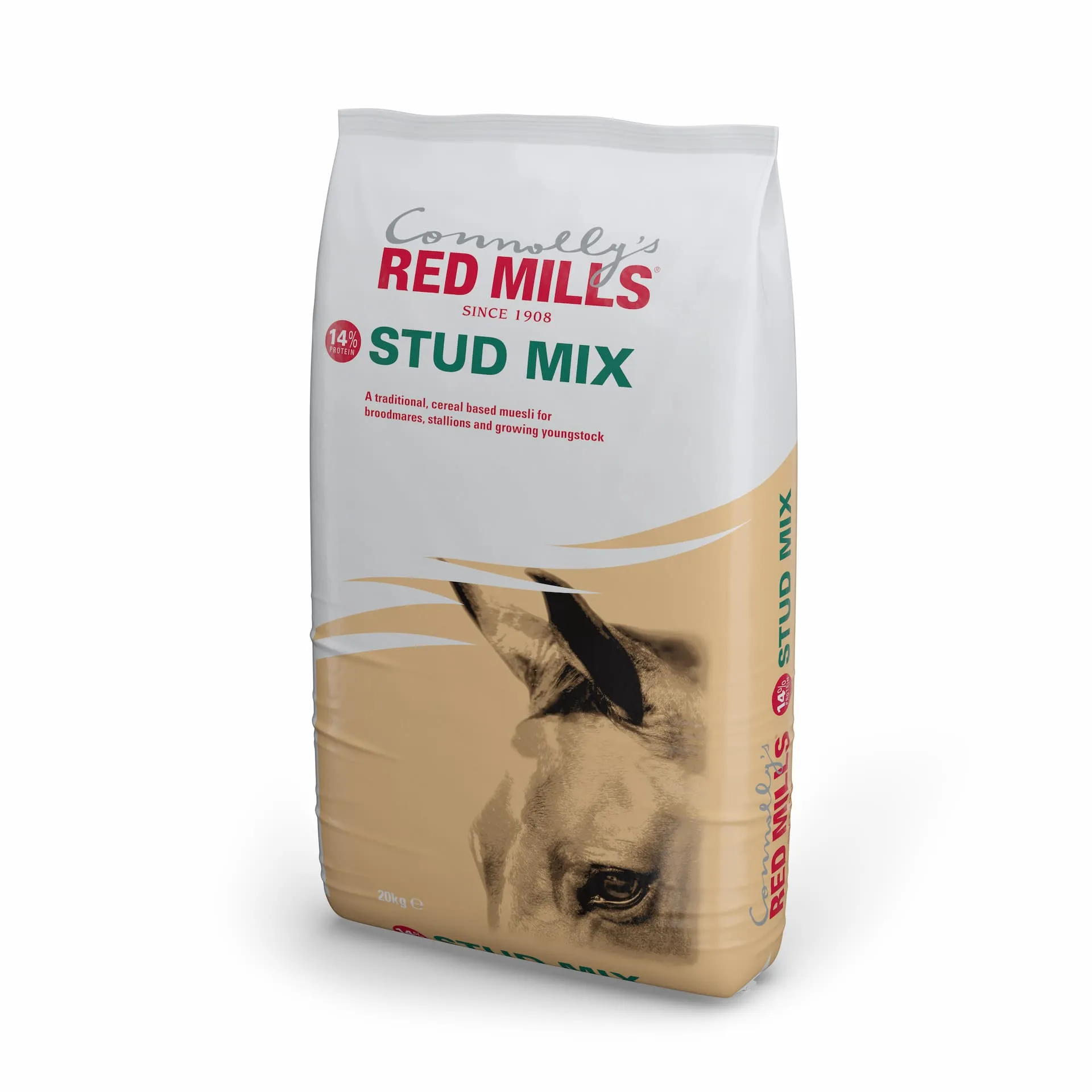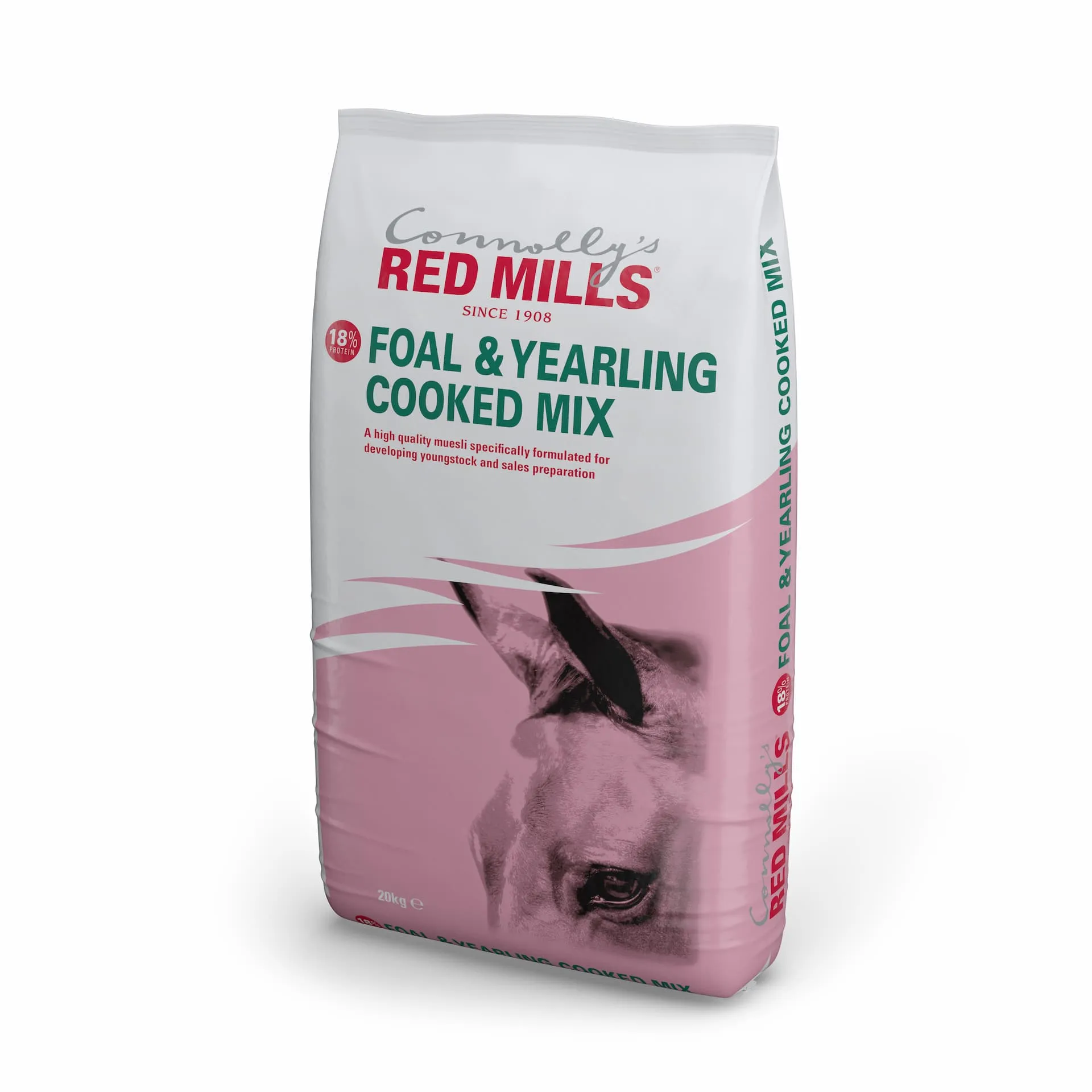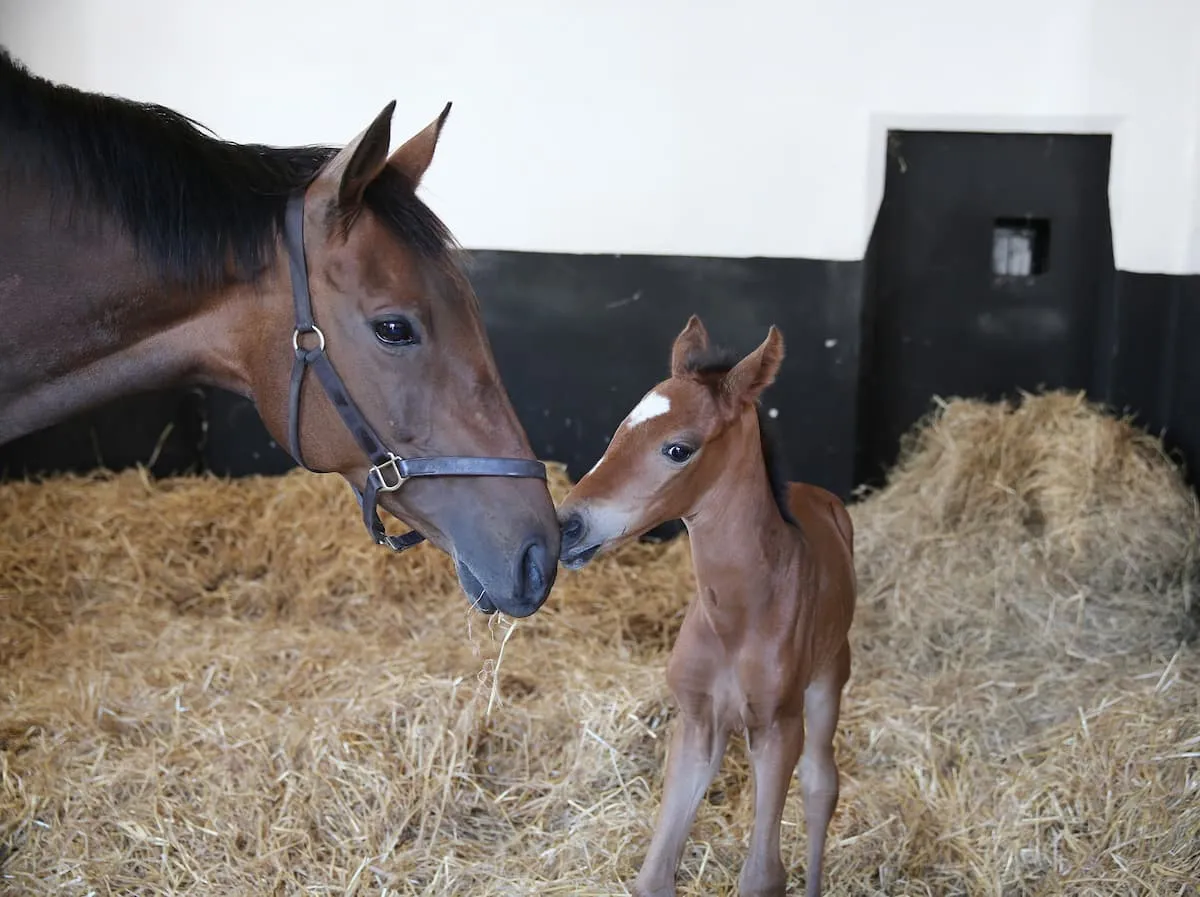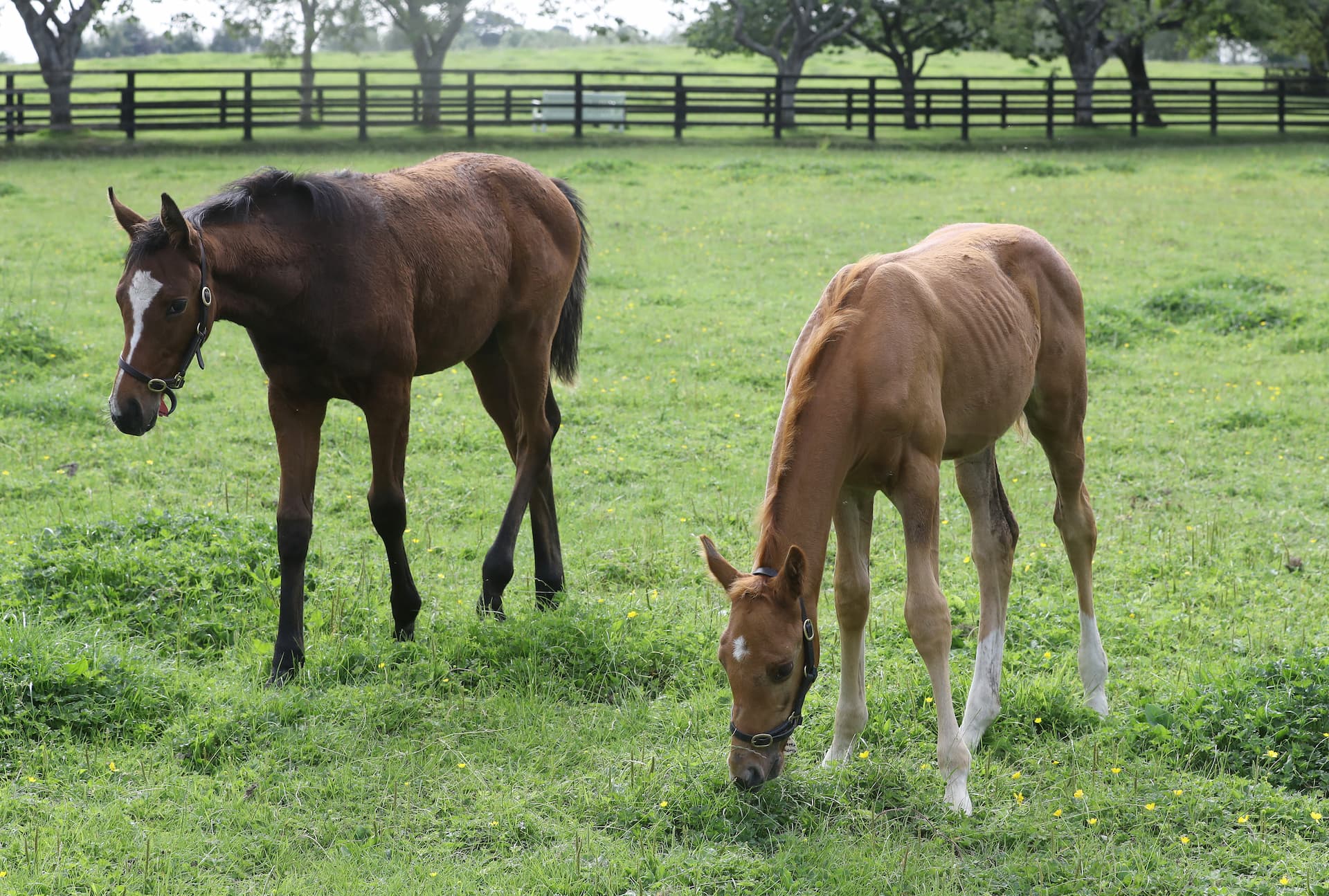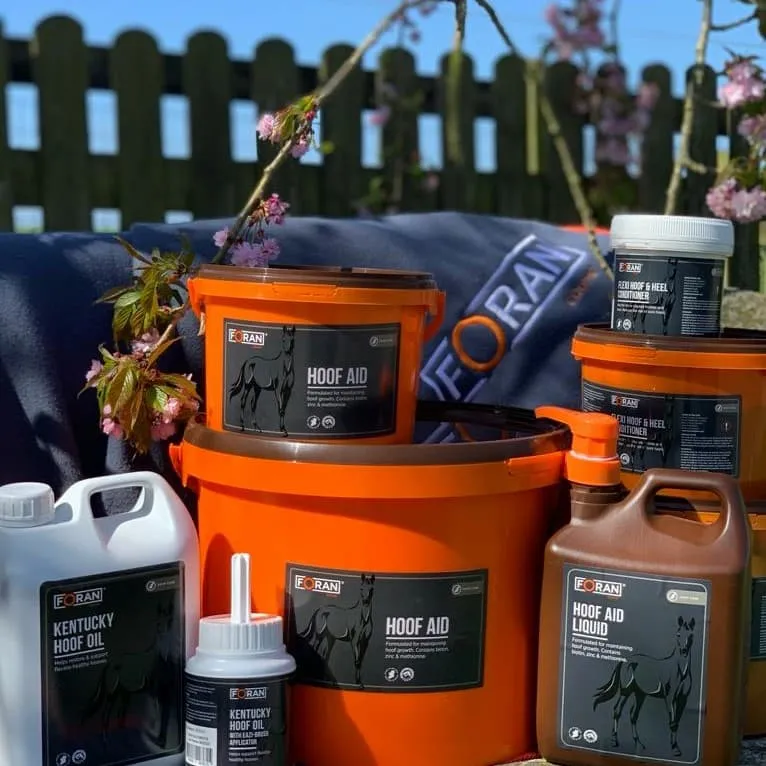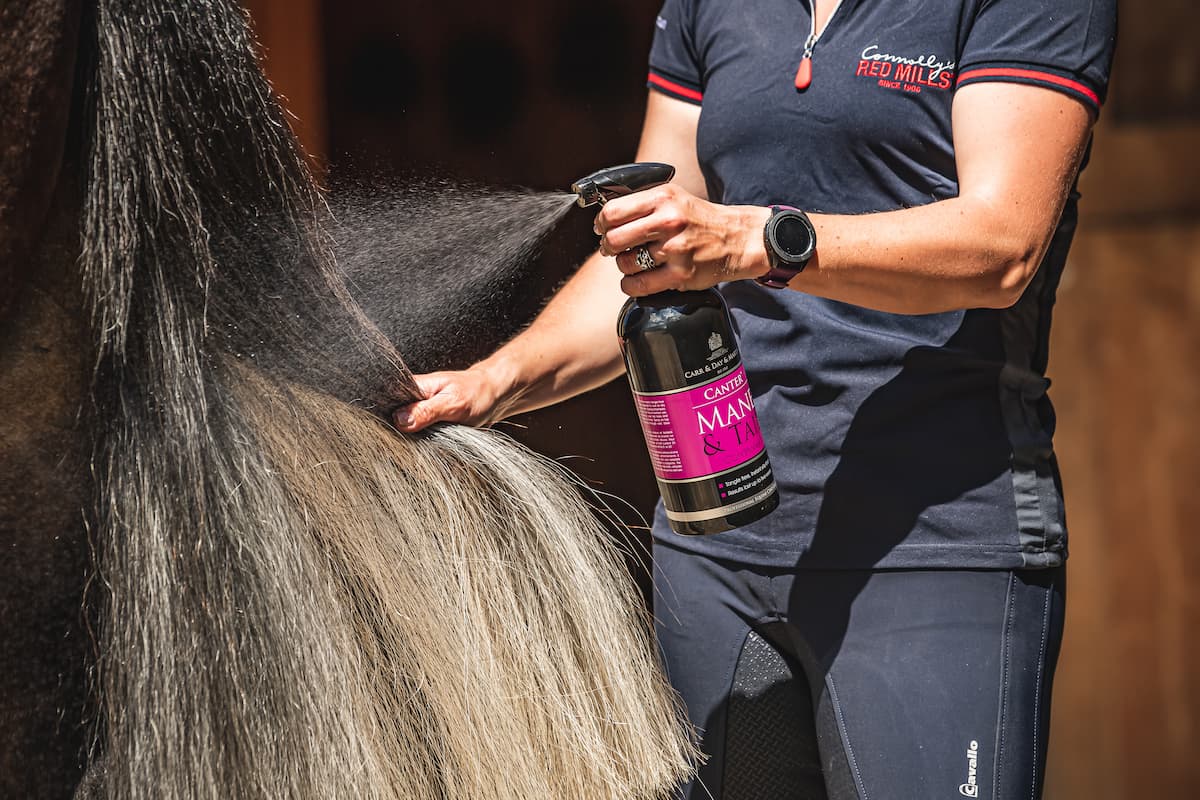Mar, 2021
To ensure correct bone growth and development in young horses their nutrition must be managed carefully. We know that inadequate or imbalanced feeding of either the mare during pregnancy and/or the growing youngster, can result in skeletal issues including developmental orthopaedic disorders (DOD). So, what are the key nutrients needed to support sound skeletal development and bone growth in young horses?

Collagen is a protein, which forms the bony matrix on which minerals such as calcium are deposited. Historically many breeders and veterinarians have inappropriately blamed protein intake for bone disorders in youngstock. However, we now know this is not the case and feeding inadequate levels of protein may in fact detrimentally affect bone formation. When it comes to protein, quality not just quantity, is vital. Protein is made up of non-essential and essential amino acids; the latter cannot be made in the body and must be provided in the diet. Good quality protein is rich in these essential amino acids, and it plays important roles in the development of strong, healthy bones.
Calcium & Phosphorus
Breeders have long known the importance of calcium for horses and that it must be fed in conjunction with adequate phosphorus. It is well documented that these essential minerals are the foundation of strong and healthy bones, making up 70% of the bone mineral content. The level of these minerals in the horse’s blood must be maintained within narrow limits for optimal bodily function. If dietary intake is deficient, the body will draw upon its reserves, principally the bones, resulting in the removal of these minerals from the skeleton (bone demineralisation), reduced bone density and potentially bony malformations.
Calcium and phosphorus have closely inter-linked roles and must be fed in the correct ratio of 1.5-2:1. Dietary deficiencies or imbalances in the levels of calcium and phosphorus in the diet can lead to serious conditions including rickets and nutritional secondary hyperparathyroidism. In recent years, the recommended daily requirements for calcium and phosphorus have been revised upwards.
A suitable hard feed will provide an additional source of these essential minerals. However, it is important to note that adding other feedstuffs such as chaffs or cereals to the horse’s feed can alter the calcium to phosphorus ratio in the overall diet. For example, adding oats, which are high in phosphorus, will reduce the calcium to phosphorus ratio and this may adversely affect calcium absorption. On the other hand, including some alfalfa, which is high in calcium, can help to increase the calcium to phosphorus ratio. If you are concerned about the levels, or the ratios of, calcium and phosphorus in your horse’s diet, speak to our expert nutritionists who will be able to help.
For horses with elevated calcium and phosphorus requirements, such as broodmares during late pregnancy and lactation or growing youngstock, it can often be beneficial to also feed a supplement containing additional calcium and phosphorus such as Foran Equine Cal-Gro or Osteo-Glycan (see below).
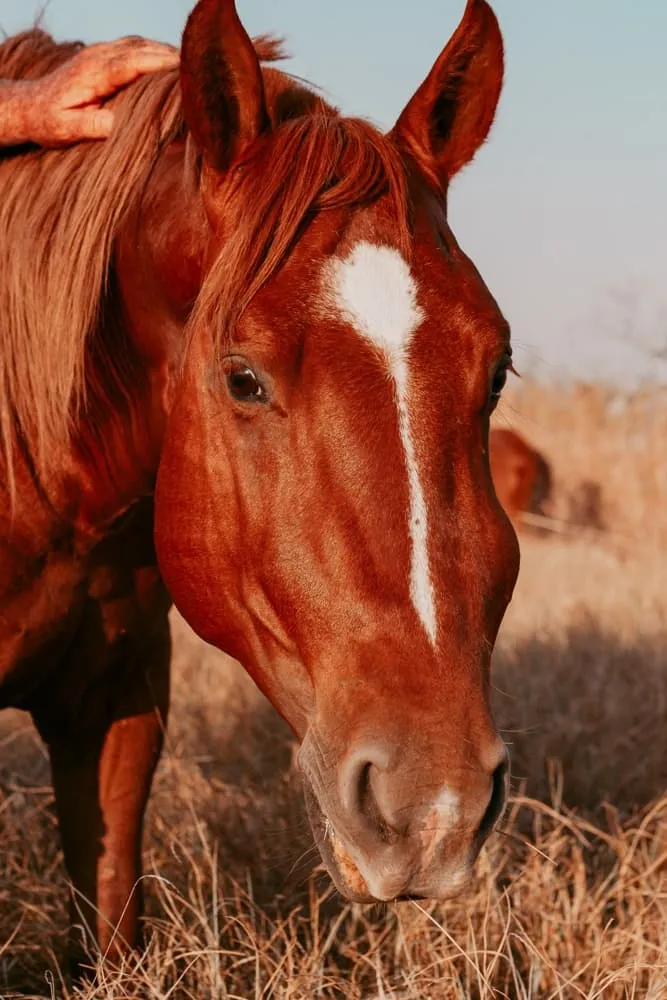
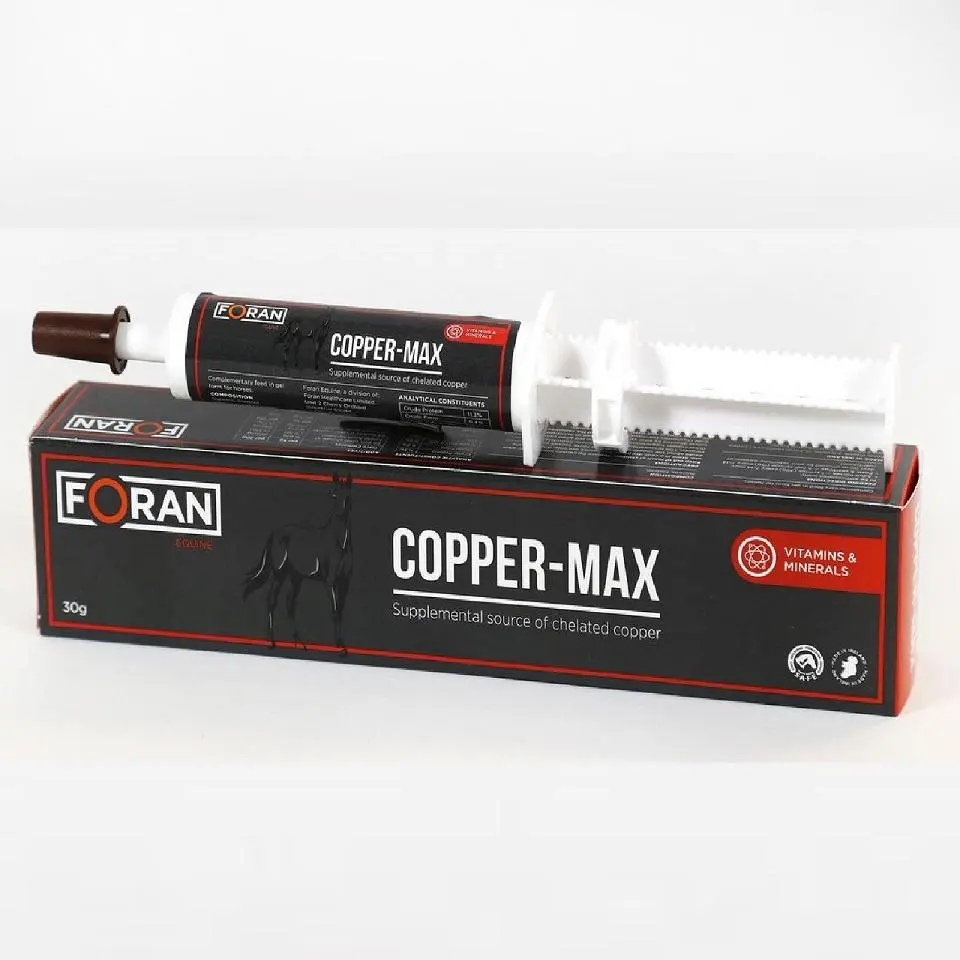
Copper & Zinc
Copper is an important mineral for bone, joint and connective tissue development. This is because copper is a component of several copper-dependent enzymes involved in elastin and collagen formation. Feeding inadequate copper to the pregnant mare has been shown to increase the risk of DOD in the offspring, and unfortunately, supplementation of the foal after it is born does not mitigate this risk. Similarly, zinc is integrally involved in cartilage turnover and low dietary zinc intake has been correlated with an increased incidence of DOD in growing horses.
Copper and zinc levels in forage, even lush spring grazing, will not be adequate to meet the young, growing horse’s requirements. Therefore, these minerals must be provided in the form of a suitable hard feed or supplement. It may also be beneficial to provide additional supplementation to the pregnant mare during her last trimester or to any horse where copper intake has previously been low or marginal (e.g. yearlings grazing land known to be low in copper). In these situations, we recommend Foran Equine Copper Max, which contains highly bioavailable chelated copper and zinc.
Silica
Silica plays an essential role in the formation of bone, cartilage, tendons, ligaments and skin. Furthermore, it helps to facilitate the absorption of other minerals and enhances their activity in the body. In the last decade, research has demonstrated the importance of this mineral in the horse, showing that it may potentially aid bone density and improve collagen synthesis.
Vitamin A
In the growing horse, vitamin A supports the proper functioning of osteoclasts (bone-resorbing cells) during bone remodeling, the process by which bones strengthen and adapt to the forces they encounter. Fresh pasture is a good source of vitamin A, therefore, when access to grazing is limited, additional vitamin A must be provided by feeding recommended levels of a suitable hard feed or a high-specification vitamin and mineral supplement such as Foran Equine Chevinal.
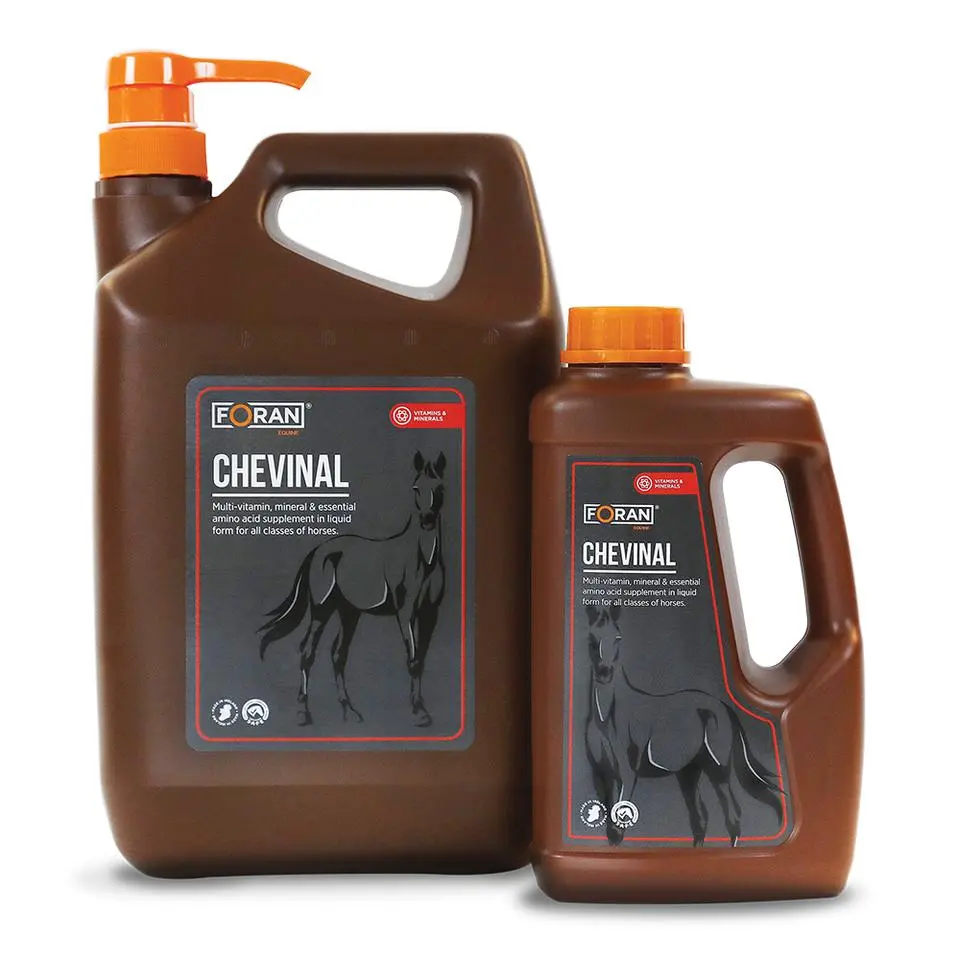
Commonly called the sunshine vitamin, vitamin D is important for the maintenance of the correct levels of calcium in the blood, and thus normal mineralisation of bone. With adequate access to sunlight, the horses will produce their own vitamin D. However, for horses that are stabled or rugged for long periods it is sensible to provide an additional source of vitamin D via the feed or a vitamin and mineral supplement.
Vitamin K plays a role in bone and cartilage metabolism and it is thought that deficiencies may affect bone metabolism. Whilst dietary requirements for vitamin K have not been fully established, there is evidence that vitamin K supplementation might be helpful for young horses, as it is necessary for the production of osteocalcin; the hormone responsible for facilitating bone metabolism and mineralisation..

Nutrition clearly plays a major role in correct bone development; youngstock that do not receive the right balance of nutrients in their diet are a risk of skeletal problems including DOD’s.
All Connolly’s RED MILLS feeds have been specifically formulated to help support bone health. Our Pro Balance vitamin and mineral package ensures that your youngstock receive optimal levels, and the correct ratios, of essential minerals and vitamins such as calcium, phosphorus, copper, vitamins A, D and K. Moreover, our high quality protein from soya is rich in essential amino acids such as lysine, to help the bones build a strong framework. By selecting a Connolly’s RED MILLS feed designed and formulated for young, growing horses, you can be confident that you are providing the proper level of essential nutrients to your youngstock.
In some situations, such as; the latter stages of pregnancy (when the majority of foetal bone development occurs), lactation, periods of early rapid growth or the first stages training, it can be beneficial to provide additional nutritional support targeted at maintaining and improving bone health. For the pregnant or lactating mare, we recommend Foran Equine Cal-Gro. Cal-Gro has been formulated to be fed during late pregnancy when the majority of foetal bone development occurs), and throughout lactation. Unlike other calcium supplements for horses Cal-Gro not only contains calcium and phosphorus in the ideal ratio of 2:1, it also includes the essential amino acid lysine, chelated copper, zinc and silica all of which help to support foetal bone development and optimise the nutritional content of milk.
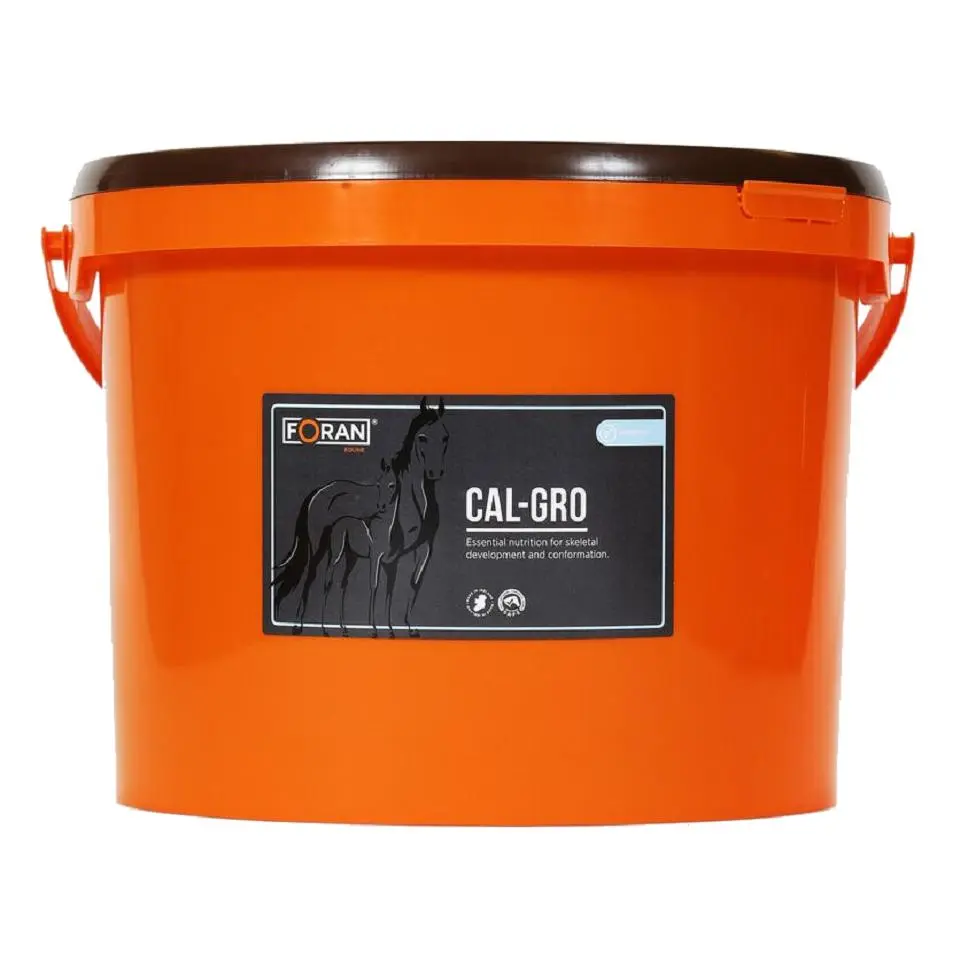
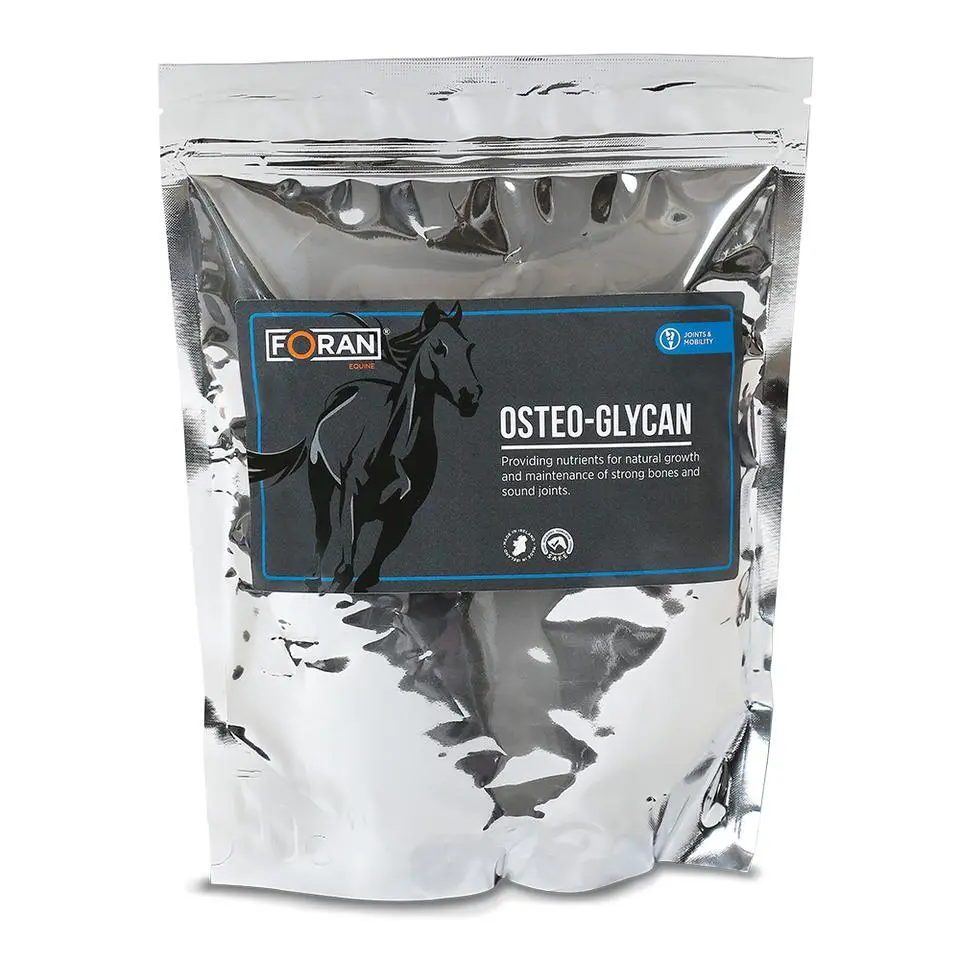
To continue supporting bone health and development in foals right through to young horses, we recommend Foran Equine Osteo-Glycan. This is a superior powdered supplement containing highly available calcium. Chelated copper and zinc, as well as vitamins A and D are included to support bone mineralisation. Osteo-Glycan also contains marine collagen, and clinoptilolite, an organic silica, all of which play essential roles in the formation of bone.
Related Products
Contact our sales team via WhatsApp or email

Nicolas Gaumerais
Group Commercial Manager GCC Region
Based in the UAE, Nicolas Gaumerais is the Commercial Manager of Connolly's RED MILLS Group which includes Connolly's RED MILLS horse feeds and Foran Equine supplements sold in the GCC region. Nicholas regularly travels across the Gulf to meet customers.

Dominic Bligh
Group Commercial and Technical Executive GCC Region
Alternatively, reach out to Dominic Bligh who offers nutritional & technical support for Connolly's REDMILLS Feed and Foran Equine supplements. Dominic is also the Commercial Manager for Foran Equine Supplements. He regularly visits client's stables in the Middle East to advise on bespoke feeding programmes.
